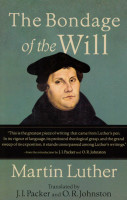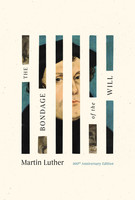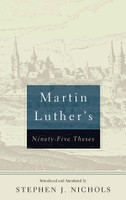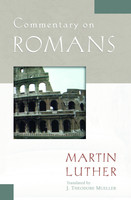
The Bondage of the Will - Hendrickson (Luther)
- Affordable shipping (free $100+)
- 100,000+ customers served
- "Wonderful books, great prices, awesome customer service." – Ivan, IL
Description
First published in 1525, Martin Luther’s Bondage of the Will is acknowledged by theologians as one of the great masterpieces of the Reformation. It is Luther response to Desiderius Erasmus’ Diatribe on Free Will, written in his direct and unique style, combining deep spirituality with humor. Luther writes powerfully about man’s depravity and God’s sovereignty. The crucial issue for Luther concerned what ability free will has, and to what degree it is subject to God’s sovereignty.
For Luther, this key issue of free will is directly connected to God’s plan of salvation. Is man able to save himself, or is his salvation entirely a work of divine grace? This work is vital to understanding the primary doctrines of the Reformation and will long remain among the great theological classics of Christian history.
Contents
- Introduction
- Erasmus’ Preface Reviewed (Section 1)
- Erasmus’ Skepticism (Sections 2-6)
- The Necessity of Knowing God and His Power (Sections 7-8)
- The Sovereignty of God (Sections 9-27)
- Exordium (Sections 28-40)
- Discussion: First Part (Sections 41-75)
- Discussion: Second Part (Sections 76-134)
- Discussion: Third Part (Sections 135-166)
- Conclusion (Sections 167-68)
Appendix 1: Martin Luther’s Judgment of Erasmus of Rotterdam
Appendix 2: Martin Luther to Nicolas Armsdoff Concerning Erasmus of Rotterdam
About the Author
Martin Luther (1483-1546) was born in Germany and is famous for his protest, The Ninety-five Theses, which he nailed to the door of the castle church of Wittenberg. The son of middle-class parents, Luther left his comfortable life to become a monk. Luther's own spiritual awakening was sparked by his study of the Greek text of Paul's letter to the Romans, which challenged him with the statement, "The just shall live by faith." His study and teaching of the Greek text of the New Testament represent the beginnings of modern textual study, and his widely disseminated writings sparked the Protestant Reformation in Europe.





